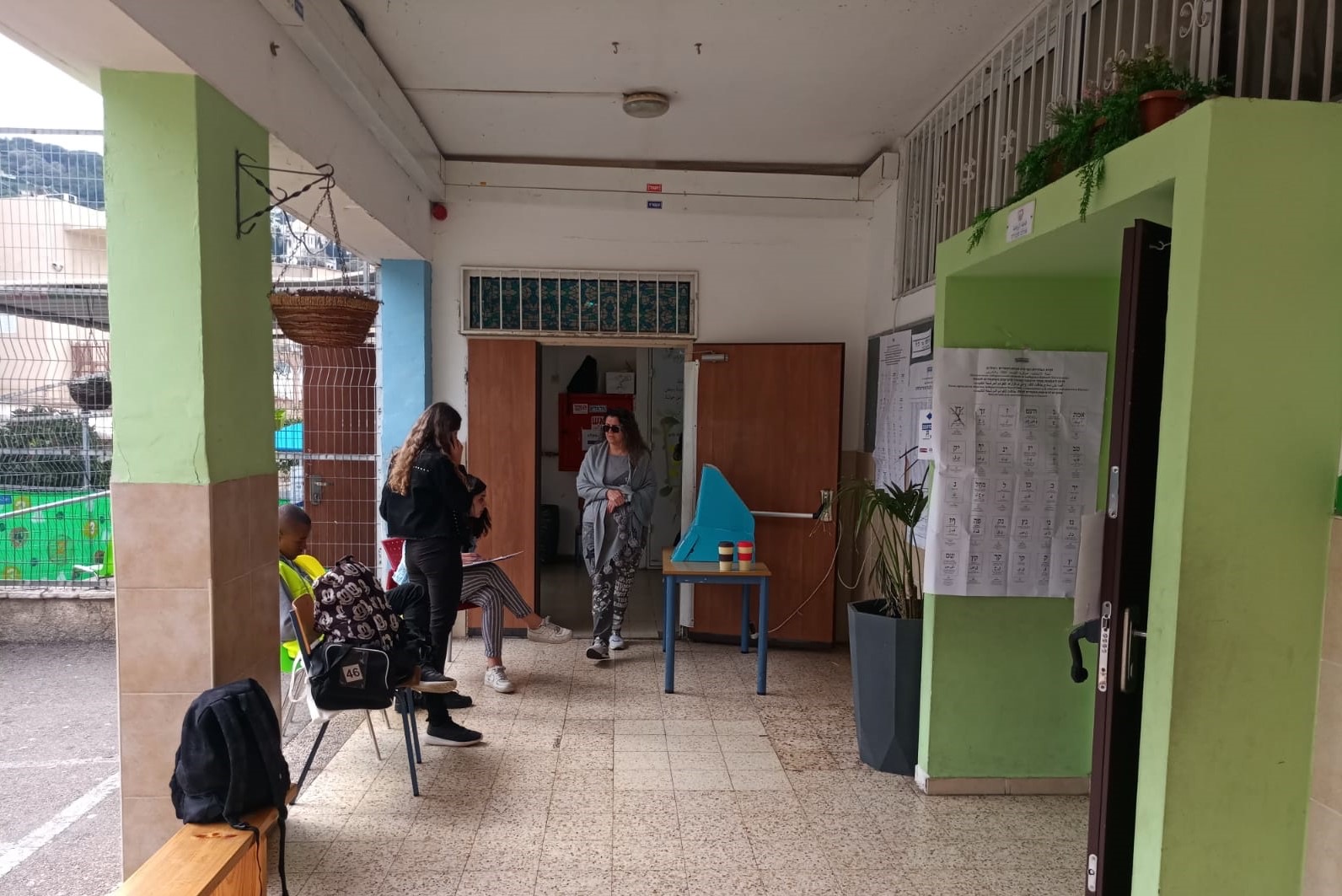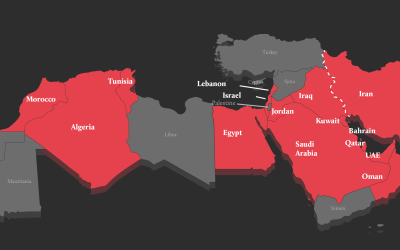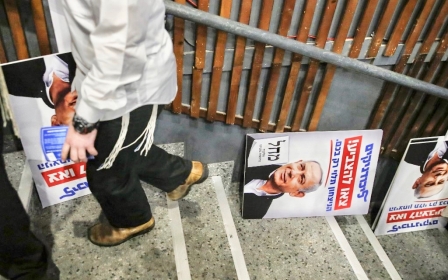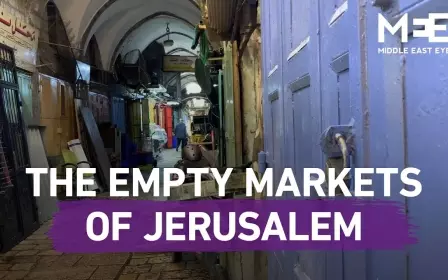Israelis defy boredom and coronavirus to vote in third election in a year
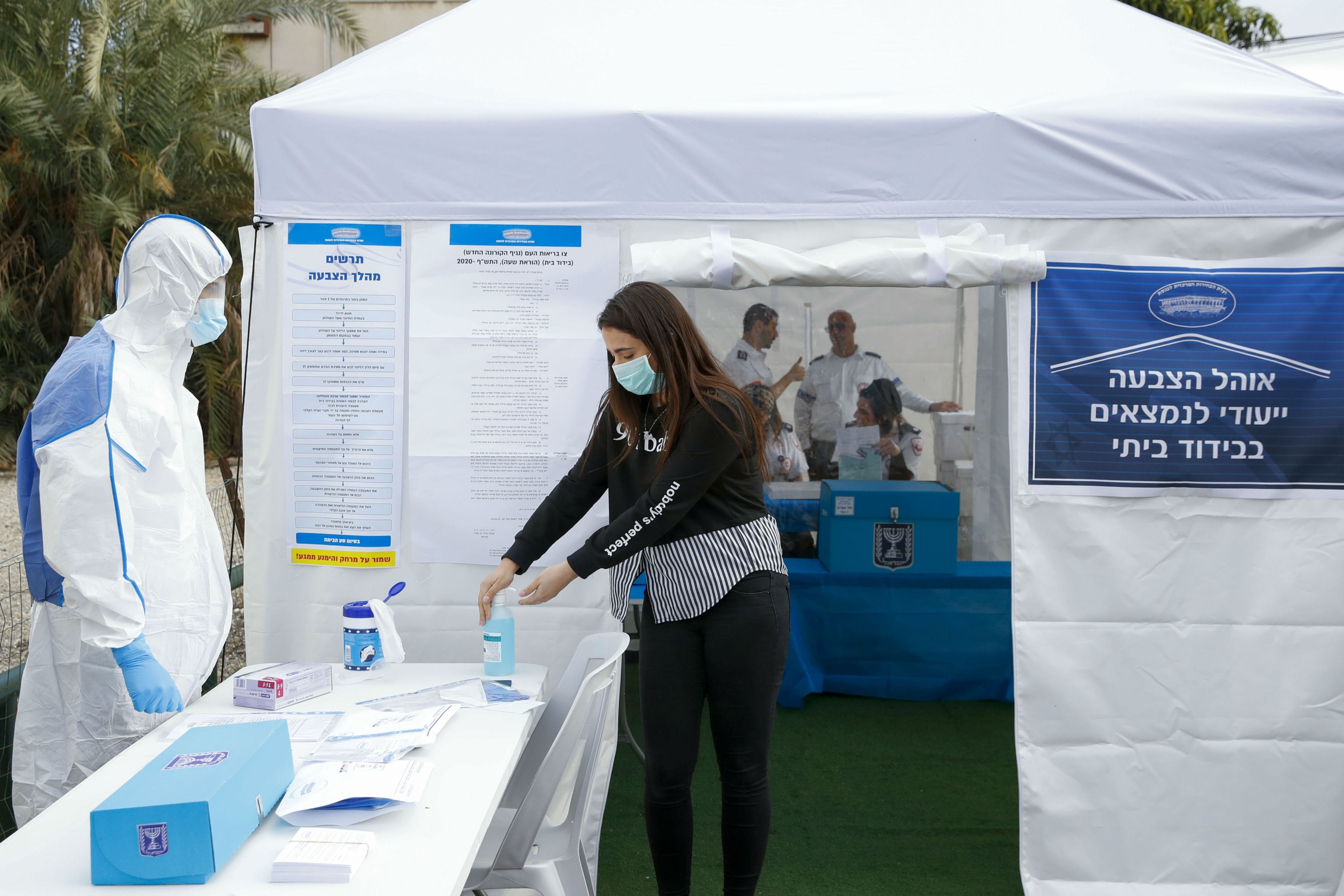
Despite being asked to vote for a third time in a year and worries over coronavirus, Israelis have been turning out at the polls in healthy numbers on Monday hoping to end the political deadlock.
At stake is the political career and possible freedom of Benjamin Netanyahu, the prime minister who twice failed to form governing coalitions after April and September's elections and who is due in court on corruption charges on 17 March.
Also looming is the prospect that a resounding win for Netanyahu and his allies will see the swift annexation of vast stretches of the occupied West Bank, with backing from the US administration of President Donald Trump.
Benny Gantz, the former army chief who now heads the Blue and White party, is taking a third stab at unseating Netanyahu, after also failing to cobble together the 61 seats in Israel's parliament necessary to form a government.
"I'm voting for Gantz because it's time to replace Bibi," Etai Bats, a 28-year-old from Rishon Lezion told Middle East Eye, using a popular nickname for Netanyahu.
'I see the flow of Arabs who do not normally vote, I see faces here that I have never seen in the ballot box'
- Muhammad, Joint List activist
"I'm not dying for Gantz or anyone else, and in principle it is much better for me to vote for the truth, but most importantly for me right now the government will not be corrupt on the level that it is corrupt today, so I'm voting for those who are most likely to kick Bibi out of power," he said.
"The truth? I'm not sure that's going to happen and chances are there will also be a fourth election, because even if Gantz wins, I'm unsure at all that he'll be able to form a government."
Netanyahu has been plagued with charges in three corruption cases, accusations that he calls a witch-hunt but have prompted Gantz to refuse any power-sharing agreement with the prime minister.
He is set to begin standing trial on 17 March, when coalition-building negotiations are likely to be in full swing. Opponents have said that the prime minister is likely to use any majority to push through legislation that would give him immunity from the charges.
For his supporters, however, Netanyahu's indictments have had little impact and the last polls released before election day indicated that the prime minister's Likud party was neck and neck with Blue and White, but gaining ground.
Turnout could be key. By 4pm (1200 GMT) local time, 47 percent of registered voters had cast their ballots - the highest since 1999 and 2.7 percent higher than in September.
For some of Netanyahu's allies that could spell trouble. Shas and United Torah Judaism rely solely on the Ultra-Orthodox communities, whose turnout is consistently strong. Avigdor Lieberman's Yisrael Beiteinu, too, relies on voters from the former Soviet Union.
Higher overall turnout could see their voter share drop and number of seats decline. Parties need a minimum of 3.25 percent of the vote to enter Israel's parliament, the Knesset.
High early turnout in the triangle
The first few hours saw turnout in the towns of the triangle, an area in the north heavily populated by Palestinian citizens of Israel, up by around 10 percent.
That spells good news for the Joint List, a slate representing Palestinian voters, who seek to up their 13 MPs. If the Joint List is able to increase its share significantly, it could single-handidly stop Netanyahu from forming a government.
"The voting patterns in Baqa al-Gharbia and Arab towns is changing in favour of the Joint List," said Jamal Daka, an official in Balad, one of the four parties that makes up the slate.
“From the early hours women came to vote and open the polls. This is an important thing happening now. If this continues it will be a real achievement for the Joint List, as it has not been seen in other elections."
A similar trend was seen in Jaffa, another area known for its sizeable Palestinian population.
"I think this time together we will bring in 16 seats and more. I see the flow of Arabs who do not normally vote, I see faces here that I have never seen in the ballot box," Muhammad, an activist for the Joint List in Jaffa, told MEE.
According to Muhammad, the so-called "deal of the century" released by Donald Trump last month addressing the Israel-Palestine conflict has had some effect on the ground. The scheme, which Netanyahu vowed to pursue if re-elected, essentially handed the Israeli right all of its wishes at the expense of the Palestinians, whose leadership immediately rejected it.
"Because of the Trump programme it feels dramatic. Something happened there, it felt urgent to kick Bibi out," he said.
"I think that under the table, Gantz and the Joint List have agreed on entering government and that for the first time, an Arab minister from the Joint List could appear. They don't say it in the media but in my opinion that's where it goes."
Coronavirus fears
The election is being held amid the coronavirus epidemic, with 10 cases so far confirmed in the country, and 5,600 Israelis reportedly under self-quarantine.
Voters under home quarantine, such as those who have recently travelled back to Israel from coronavirus hotspots, can attend special polling stations if they wear a surgical mask and show no sign of the disease.
Netanayhu has urged voters not to be put off by the virus or "fake news" about its spread.
"Go vote," he told reporters. "The coronavirus thing is completely under control. People can vote with complete confidence."
Shimon, a Likud voter in Jaffa, told MEE: "A lot of people didn't come because of the corona, that's a factor in the voting. I've seen people come with masks to vote."
Coronavirus hasn't been the only phenomenon blighting the election. Netanyahu and Gantz's attacks on each other have been highly personal and vicious. Meanwhile the Israeli right has targeted the Palestinians and Joint List leader Ahmad Tibi, in particular, with racist adverts and language.
"I've been accompanying the elections in Israel almost since the country's foundation," Israeli President Reuven Rivlin said while casting his vote.
"It was always a day we considered to be a celebration of Israeli democracy, and I must say that today I feel no sense of celebration. Only a sense of hard shame, before you, the citizens of Israel. We don't deserve another horrible election campaign that deteriorates into such filth, like the one that ends today."
That sentiment was echoed by Hannah Rabin, a 30-year-old waitress in Jaffa.
"The atmosphere here is like a holiday. But from the other side, I lack the sense of optimism and celebrating that there is usually in the election. Perhaps this time there is not such a feeling," she told MEE.
Israelis traditionally have the day off on election day, though it is a very different picture for Palestinians in the occupied West Bank and beseiged Gaza Strip. Not only are they restricted from voting, the Israeli military places the two territories under fierce lockdown as Israelis vote.
Middle East Eye propose une couverture et une analyse indépendantes et incomparables du Moyen-Orient, de l’Afrique du Nord et d’autres régions du monde. Pour en savoir plus sur la reprise de ce contenu et les frais qui s’appliquent, veuillez remplir ce formulaire [en anglais]. Pour en savoir plus sur MEE, cliquez ici [en anglais].


